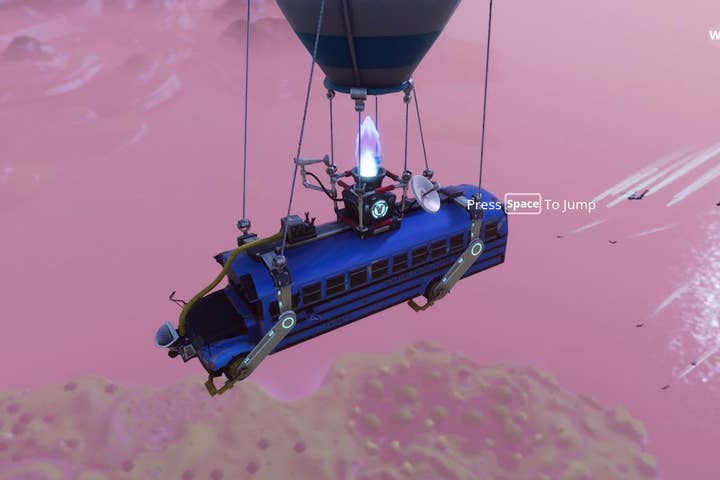Does anyone own the Battle Royale genre?
Current law gives developers little more than "a headstart" over potential imitators, says Harbottle & Lewis' Kostyantyn Lobov
The recent public statements made by Bluehole and Epic about PlayerUnknown's Battlegrounds and its competitor Fortnite raise an important question: can anyone really own a game genre?
This question is a good illustration of an issue which is felt acutely in the games industry, more so than in others. Intellectual property is protected by a patchwork of legal rights, each of which protects a different thing. Broadly speaking: copyright protects the expression of original ideas; patents protect novel, technical inventions; designs protect the external appearance of products (be they physical or digital); trade marks protect more or less anything which consumers rely on to identify the commercial origin of a product; and the law on confidentiality protects information which is, well, confidential.
The problem is this: game genres and mechanics often do not fit comfortably into any one of these. Copyright protection can extend to a wide variety of works, including artistic works (such as logos, artwork, textures, GUIs), literary works (text, speech, menus), dramatic works, sound recordings, music and films. There is no separate category for games, which typically contain a combination of all of these and, crucially, nothing to protect the ideas underlying those works. In Europe, there is reasonably a well-established line of cases which reinforce the notion that copyright protects the expression of ideas - not the ideas themselves. The protection provided against copying at a more abstract level (such as general themes of a story) is more limited.
"Intellectual property is protected by a patchwork of legal rights, each of which protects a different thing"
What about patents? Elements of gameplay which are technical in nature can be patentable, and there are plenty of examples of this in the games industry; Konami's patent for an arrow which shows where your player is when they are off-screen in PES, for example. The difficulty is that patents must be applied for and granted on a country-by-country basis by a registry - a relatively expensive and slow process compared to copyright, which arises automatically when a qualifying work is created. There are two other issues: (i) patents protect inventions which are novel and contain an inventive step (i.e. are not obvious), and (ii) they do not protect ideas or discoveries as such - the invention must be capable of industrial application.
Even if the Battle Royale genre could be shoehorned into the definition of an 'invention' (in itself doubtful, as the idea is so abstract in nature), the concept of last-man standing on an island littered with weapons is not new and would fail to meet the novelty requirement. There is good reason for this. Patents are difficult to obtain because the protection they offer is extensive - a 20-year monopoly over the invention, and the right to prevent anyone from commercially exploiting it in more or less any way.
Registered and unregistered designs (or Design Patents, to our friends in the US) are of limited use for game genres or mechanics, since they protect only what the human eye can see.
Confidentiality would be a great solution, except it would require the genre/mechanic not to be disclosed to anyone other than on a confidential basis, which is unworkable in practice.

This leaves us with trade marks. While not a perfect solution, this is where things begin to look better for developers who want to protect some of the more abstract game features. Trade marks come in registered and unregistered form. As the name suggests, registered trade marks must be applied for and granted by a registry, but this process is significantly cheaper and more straightforward than obtaining a patent. Once granted, a trade mark can potentially last indefinitely, as long as it is properly used and maintained.
Trade marks in Europe have undergone something of a renaissance in recent years. The EU Intellectual Property Office recently announced a relaxation of its rules on "graphical representation", which paves the way for the registration of more non-traditional trade marks such as shapes, sounds, movements and colours.
"The gap in IP protection for genres and game mechanics is one of the main reasons for the cloning epidemic"
Unregistered trade marks are protected in the UK through the law of "passing off", which is similar to the laws on unfair competition found in other countries. The strength of passing off as a legal claim is its flexibility. Provided a developer can show that it has accumulated "goodwill" in a particular genre or gameplay feature, such that consumers who see that genre/feature are likely to believe that it has originated commercially from that developer, the unauthorised use of that genre or feature could amount to a misleading misrepresentation.
Passing off/unfair competition is not without its flaws. Being unregistered, it is more difficult to prove. Submitting an app store takedown notice based on an unregistered trade mark is equal parts legal knowledge, witchcraft and luck. The results can be inconsistent to say the least, depending on who deals with the request; complicated by the fact that there is no convenient registration number to refer to (it has to be said that app stores' understanding of unregistered rights has improved over the years, but the process is still somewhat hit and miss).
Passing off also relies on the developer being able to prove that they have goodwill, so it is more likely to be relevant for games which have either been on the market for a long time, or which have burst onto the scene with a new concept and quickly established a reputation and loyal following. The word "prove" is crucial here - without properly curated evidence of sales, marketing spend, press coverage and accolades, a passing off claim is unlikely to get off the ground.

How did we end up here, and what can developers do?
The gap in IP protection for genres and game mechanics is one of the main reasons for the cloning epidemic. As we now know, the PUBG/Fortnite situation is slightly different - complicated by an existing contractual relationship - but you only need to look at any app store to see the scale of the cloning problem.
The gap can also be blamed in part on the fact that intellectual property laws in most countries were written several decades ago. In the UK, the basic principles of copyright law are still governed by the Copyright, Designs and Patent Act, which last received a major overhaul in 1988 - an exciting era in gaming, but long before the days of elaborate game mechanics, or games as complex pieces of interactive entertainment as we know them today.
"With the law as it stands, a killer idea for a new genre or gameplay mechanic is simply not enough"
But the situation is not as bleak as it may appear, and there are steps developers can take to improve their chances of being able to deal with clones. The truth is that most clones are not made by sophisticated companies with in-house legal teams who engage in the sort of detailed legal analysis which is needed to make a clone untouchable. This means they often slip up. It may be the inadvertent use of a trade mark (perhaps not in the title, but in the description - "based on..."); or a creative who got a little carried away in taking inspiration from an existing game's textures, artwork or character models; or a writer who has imitated one too many elements of an existing plot line.
All of these are potential angles of attack. In practical terms, if the objective is to remove a clone from the market, it does not matter how that is achieved. Whether it is a copyright infringement claim (preferably in respect of something that cannot easily be changed) or a claim in passing off, the end result is the same.
The key, then, is for developers to ensure they have access to the widest array of IP rights possible. Think of them as tools in a shed; they should be easy to find, sharp, and ready to be used. In practice, this means ensuring that the developer can demonstrate a written chain of title to each copyright work found in their game (when it was created, by whom etc); ensuring that any transfer of rights are properly documented; allocating some budget towards obtaining appropriate trade mark registrations; and ensuring that documents and stats which evidence the commercial success and critical acclaim of their game can be easily accessed if necessary.
It is also important to be realistic. With the law as it stands, and legal budgets not an infinite resource, a killer idea for a new genre or gameplay mechanic is simply not enough. It is better to think of this as a head start over the cloners. An opportunity to be the first to market and establish a creative niche, rather than a monopoly which can be indefinitely maintained.
Kostyantyn Lobov is a Senior Associate at London-based law firm Harbottle & Lewis, specialising in IP and Advertising issues. He once ran his own guild in WoW. Now he gets to advise people who make games.